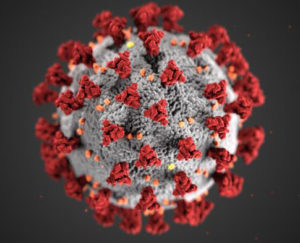 Some activities for seniors in Lincoln have been canceled, and town officials are beginning to make contingency plans in case the threat of the Covid-19 coronavirus makes it necessary to postpone the town meetings and election later this month.
Some activities for seniors in Lincoln have been canceled, and town officials are beginning to make contingency plans in case the threat of the Covid-19 coronavirus makes it necessary to postpone the town meetings and election later this month.
In consultation with town public health nurse Tricia McGean, the Council on Aging canceled several non-health-related group events during the next few weeks, including Lincoln Academy talks and special educational presentations, senior dining, and foreign language conversation groups.
As of March 9, the COA’s Matter of Balance, Stretch and Flex, Active Aging, tai chi, and line dancing classes will continue, as will tax counseling, the wellness clinics for all ages, the senior legal clinic, and office hours with Jay Higgins of Rep. Katherine Clark’s office. All social services provided by the COA are still in place. To check on specific activities or for more information, call the Council on Aging at 781-259-8811 or consult their online calendar.
The town has convened a group of senior department staff and health officials including McGean and the Board of Health to plan local prevention and response measures during the epidemic.
“It’s not completely out of the realm of possibility” that the town would need to postpone the special and annual town meetings on March 28 and the town election on March 30, Town Administrator Tim Higgins told the Board of Selectmen on Monday. The virus seems to make older people the sickest, “and they turn out in big numbers for both.”
Postponing town-wide votes could have logistical repercussions, especially for the school project. At the Special Town Meeting that will start at 9:30 a.m. on March 28 immediately before the Annual Town Meeting, residents will be asked to vote on whether to fund some of the $3.5 million recently cut from the project. Bids have been received and contracts must be signed as soon as those decisions are made.
Higgins told the selectmen he had asked construction managers how long they could postpone the Town Meeting vote and heard that “June 1 is an important deadline for them,” and they would have to have a final decision on the cuts at least a week or two before that. If the town election is postponed, Llincoln would also have to coordinate with Sudbury, which holds its election on the same day to have simultaneous votes of members of the Lincoln-Sudbury regional School Committee.
By state law, town boards and commissions must hold meetings in person and in public. Asked if that rule would be relaxed if meetings need to be held remotely, “the state has resisted that to this point, but a public health emergency might change their thinking,” Higgins said on Monday.
Gov. Charlie Baker declared a state of emergency in Massachusetts today, which gives the governor some extra powers including ordering cancellation of large-scale events, but it was not immediately clear how this would affect requirements normally imposed on local governments.
Town Clerk Valerie Fox considered not ordering ballots for the town election but went ahead and did so this week, Higgins said. If Town Meeting were to be postponed, it would technically have to be convened and then adjourned, though a quorum of residents probably would not be required for that vote. Plans are being made for sanitation precautions regarding microphones at Town Meeting and pens at the election, but “there is no backup plan yet” if the town moderator or town clerk were unable to preside at the meetings, Higgins said.
“These are the practical things we’re having to think through” as the situation changes rapidly, Higgins added. Health officials “tell us it’s just a matter of time until everyone in the community experiences this on some level.”
As of March 10, there are 92 confirmed and presumptive cases of COVID-19 in Massachusetts, according to the state’s Department of Public Health. Of those, 70 are employees or their contacts from Biogen, which held a conference from Feb. 24–27 at the Marriott Long Wharf in Boston. Forty-one of the 92 patients are from Middlesex County, and six have been hospitalized thus far.
The Centers for Disease Control have issued guidelines for older people and others at higher risk of serious illness should they become infected. Those measures include stocking up on prescription and over-the-counter medications, groceries, and other household items in case they need to stay at home for an extended period. Symptoms of COVID-19 include fever, cough, and/or shortness of breath that appear 2-14 days after exposure to the virus.
Leave a Reply